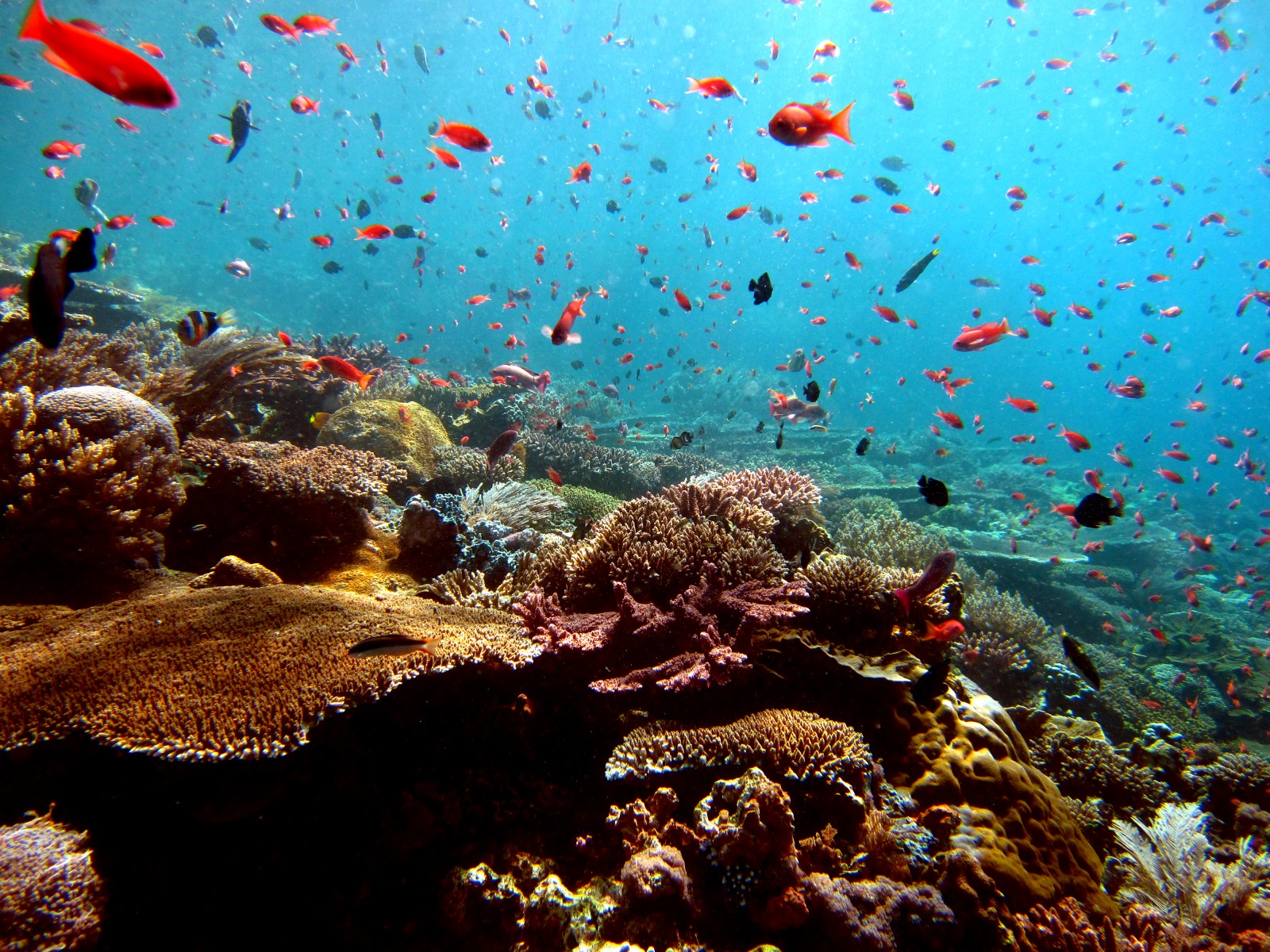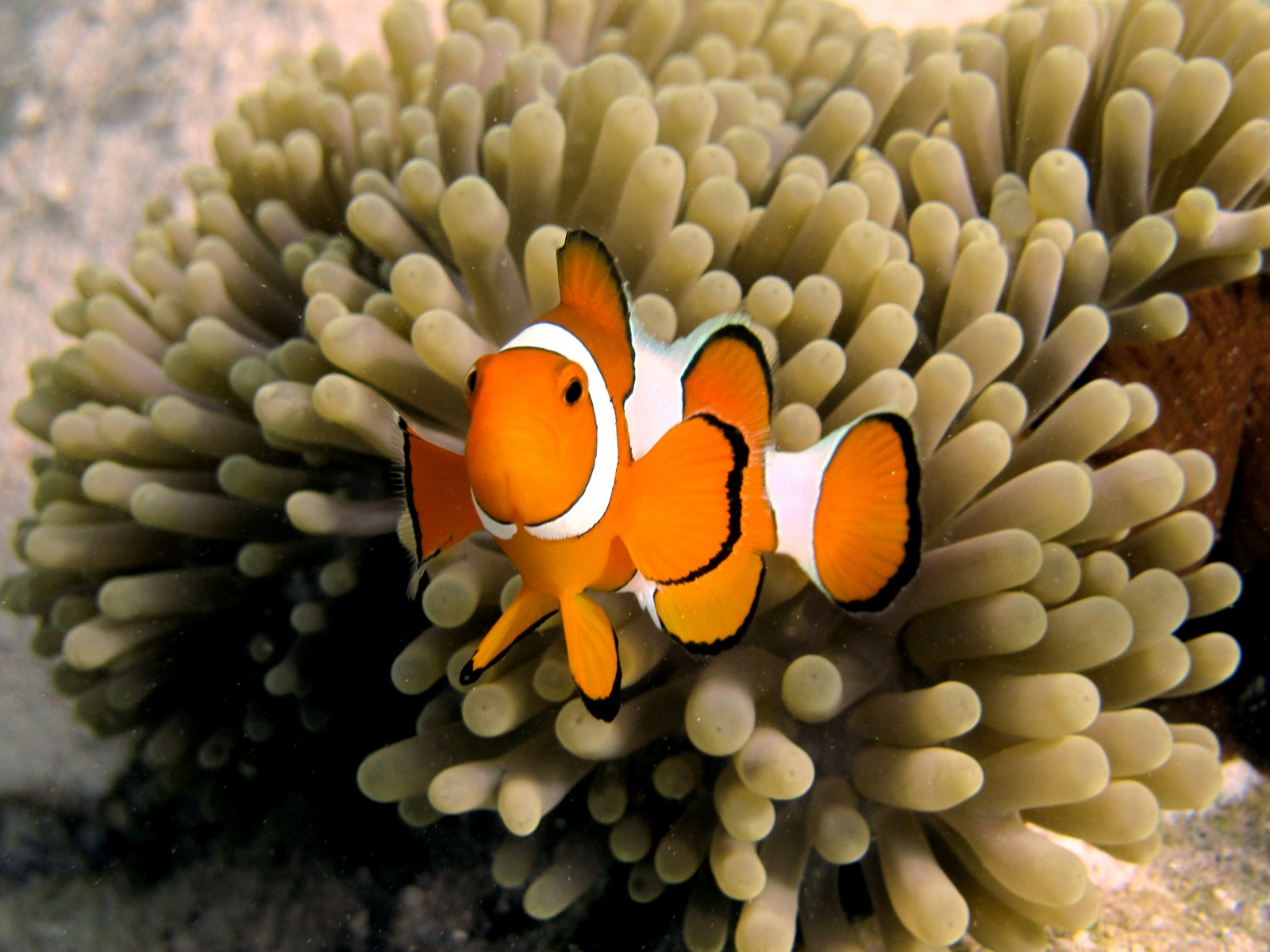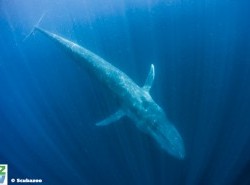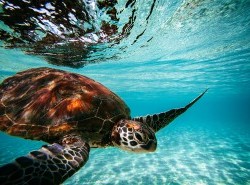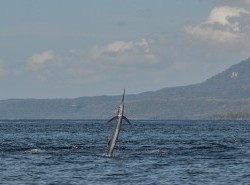Sustainability is finally moving into the mainstream as we all face up to the realities of climate change and the need to take responsibility for our impacts on the environment as a backlash to our industrial excesses looms. Governments, businesses or individuals - we all need to shift our perspective and our practice. Scuba diving is no exception. We're privileged to enjoy the wonders of the world's astonishing marine ecosystems, none of them more abundant than the Coral Triangle. But it's also up to us to help preserve these environments that give us so much pleasure. Here are some practical tips for making sure your dive adventure not only avoids negative impacts on the environment, but even supports conservation.
Support Sustainable Tourism Operators
When you travel make sure that you select hotels and operators that are sustainable tourism businesses. These businesses incorporate conservation efforts into their routine business practices. These practices could include efforts to conserve water as well as effective waste management and treatment. There are even dive camps that are completely off the grid! Try to stay somewhere that enables you to walk or cycle to the dive spot. Even using public transport is better than hiring a car or using taxis.
Support those dive operators that also exhibit awareness of marine conservation. Dive operators should educate divers about maintaining an appropriate distance from all sea creatures and plant life and not interfering with or touching any animals. They should also restrict the number of divers on each dive to the recommended limits. Another tip is to dive in marine sanctuaries. The fees you pay to dive there are used to maintain these valuable natural resources.
Volunteer Your Dive Skills
One of the great ways to dive green is to get involved in conservation efforts, even whilst you’re on a dive vacation. There are various projects in which divers can get involved. You could help by removing trash from the ocean and beaches; monitor fishes and reefs; assist in animal tagging and other research initiatives. There are all kinds of projects in which divers can get involved to assist in marine research and conservation.
Eat Your Greens
As divers we should make every effort to prevent overfishing. Be conscious of the seafood items that you order off the menu. Remember that many local fishermen are not above poaching in a marine reserve if it earns them more money. Avoid grouper, lobster, and other sensitive species. Apart from the seafood, try to support restaurants that use local ingredients. Ingredients that are imported or transported over long distances have a higher carbon footprint because of the fuel and effort involved.
Read the Labels
Many products on the market are unfortunately derived from sea creatures. Make sure you read the labels on everything you buy. Avoid any product that is derived from coral, starfish, sea anemones, sea turtles, or any other marine animal.
Stay Green Underwater
Once you’re in the water, it’s important to keep conservation in mind. No diver should ever touch, feed or harass any marine life. Just as divers should not remove any element of the natural environment, so too should they avoid allowing any trash or harmful substances to enter the water. If you see any trash such as plastic during your dive, collect it and ensure it’s disposed of properly. Your dive skills also come into play when it comes to diving green. Practice good buoyancy control and be conscious of your fin kicks. This will prevent you from inadvertently damaging a reef. You can also prevent damage by not standing on coral and not kicking up sediment. Sustainable diving is an important practice. It allows divers to contribute to the various projects and movements in marine conservation. If we are to preserve the oceans that we love, it is our responsibility to dive green and encourage others to do the same.
Last But Not Least: Offset Fuel Emissions
This is hard if you are planning a dive trip to the coral triangle, as the jet fuel that’s used here creates a significant carbon output. There are various programs run by airlines whereby you can pay an offset fee to partially compensate for this. The money is used to fund projects that actively reduce carbon emissions. In the interests of being green, you can choose airlines that are flying as direct as possible, without extra stopovers, and once at the airport you and your dive buddies can share transportation to limit the use of fuel and emissions from cars.
What is your take on sustainable diving? Is it just a “Buzzword” or can we actually do a difference to the environment? I’d love to hear your thought and maybe your suggestions on what we could do to become more sustainable divers – Leave a comment below!
